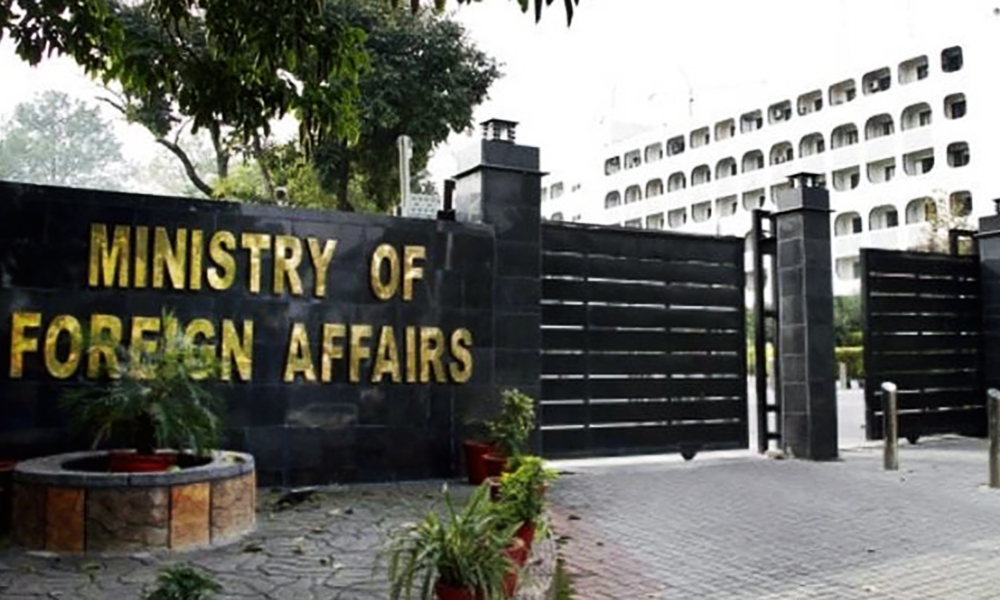Latest News
Absence of special envoy seen as Islamabad’s ‘reluctance’ to engage with IEA
The Pakistani government removed Durrani amid tensions with Kabul. No official explanation was provided.

Questions have been raised over Pakistan’s failure to appoint a new special envoy for Afghanistan after Asif Durrani, a retired diplomat, was removed from the post almost six weeks ago.
Sources familiar with the issue told Pakistan’s Express Tribune that Islamabad’s reluctance to appoint a new envoy “reflects Pakistan’s strategy to avoid extensive engagement with the Taliban (Islamic Emirate) government due to its ongoing support for the banned TTP (Tehreek-e-Taliban Pakistan)”.
The Tribune reported that the government’s hesitation stems from the ineffectiveness of the role, given the minimal diplomatic engagement between Pakistan and Afghanistan, adding that “officials at the Foreign Office believe they can manage Afghan affairs without needing a retired diplomat in the position”.
Regional countries and other stakeholders have typically appointed special representatives to address concerns and coordinate with international partners over issues relating to Afghanistan.
However, on September 10, the Pakistani government removed Durrani amid tensions with Kabul. No official explanation was provided.
The Tribune reports however, that tensions are running high, with Pakistan continuing to accuse the Islamic Emirate of not taking steps against the TTP in Afghanistan.
The Islamic Emirate meanwhile has repeatedly denied providing sanctuary to the militant group and has also urged Pakistan on numerous occasions to find a political settlement to the problem.
Pakistan, initially, did talk to the TTP at the request of the Islamic Emirate, but the talks soon collapsed and Pakistan saw an uptick in TTP attacks.
Latest News
Continued aid to Afghanistan vital for regional security: Kazakh president

Kazakhstan’s President Kassym-Jomart Tokayev has emphasized the continuation of humanitarian assistance to Afghanistan, stating that the ongoing provision of such aid plays an important role in ensuring regional security.
Speaking at the international conference “Peace and Trust” in Ashgabat, the capital of Turkmenistan, Tokayev described addressing complex humanitarian challenges and the reconstruction of Afghanistan as a necessity.
“To ensure regional security, we consider it essential to continue providing assistance to Afghanistan, including by strengthening international efforts to address complex humanitarian issues and the reconstruction of this country. Kazakhstan remains committed to supporting the people of Afghanistan through humanitarian aid, educational projects, trade development, and food security initiatives,” he said.
Meanwhile, experts believe that sustainable improvement of the humanitarian situation in Afghanistan requires broad cooperation from the international community and support for the country’s economic development.
“Investment can be defined as one of the fundamental drivers of the economic cycle, and whenever Afghan traders do not take their money out of the country and instead invest domestically, it naturally leads to greater growth and dynamism in Afghanistan’s economy,” said Abdul Zahoor Modabber, an economic analyst.
As the humanitarian crisis in Afghanistan continues, reports by international relief organizations indicate that millions of citizens of the country are in urgent need of food, health, and livelihood assistance.
The reduction in funding for aid organizations, the impacts of climate change, and the return of migrants have increased concerns about a further deterioration of the humanitarian situation in the country.
Latest News
Islamic Emirate declines to attend Tehran meeting on Afghanistan
Latest News
Sirajuddin Haqqani: A government that intimidates its people is not a true government

Khalifa Sirajuddin Haqqani, Minister of Interior of the Islamic Emirate of Afghanistan, said during a visit to Khost province on Friday that any government which rules through fear cannot be considered a true government.
“A government is one that is loved by its people, one that serves them with respect and compassion, and from whose behavior people learn ethics and sincerity,” he said.
Haqqani also stressed that Afghans who opposed the Islamic Emirate in the past should be tolerated and treated in a way that helps eliminate hostility and animosity, paving the way for national cohesion.
-

 Latest News2 days ago
Latest News2 days agoMuttaqi: Afghanistan’s progress requires both religious and modern education
-

 Sport4 days ago
Sport4 days agoILT20: Desert Vipers edge Gulf Giants in historic super over thriller
-

 Regional4 days ago
Regional4 days agoSix Pakistani soldiers killed in TTP attack in Kurram District
-

 Business4 days ago
Business4 days agoTrade bodies warn almost 11,000 Afghan transit containers stuck at Karachi port
-

 World4 days ago
World4 days agoPowerful 7.6 earthquake hits northern Japan, tsunami warnings issued
-

 Latest News3 days ago
Latest News3 days agoTrump calls Afghanistan a ‘hellhole’ country as US expands immigration restrictions
-

 Sport3 days ago
Sport3 days agoCommanding wins for Arman FC and Sarsabz Yashlar in Afghanistan Champions League
-

 Latest News5 days ago
Latest News5 days agoPakistan’s top general calls on IEA to pick between ties with Islamabad or TTP

























